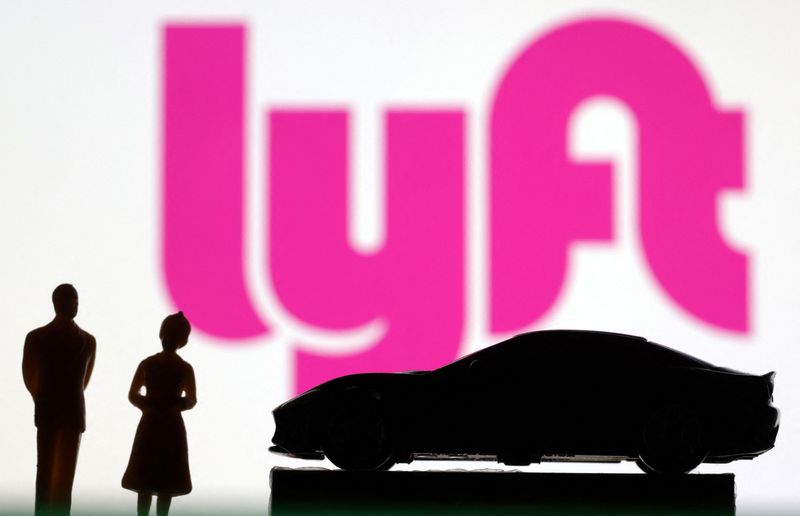By Yuvraj Malik
(Reuters) -Lyft's shares tanked 16% on Wednesday after a soft forecast for the key summer quarter stirred worries that it may be losing ground to rival Uber (NYSE:UBER).
Shares fell to an eight-month low of $9.20 in early trading, setting Lyft (NASDAQ:LYFT) on track to lose over $700 million in stock market value.
Uber, which reported strong results on Tuesday, and Lyft are locked in a tussle for market share in the North American ride-hailing sector.
Benefiting from a global footprint and wider array of services, Uber has been wooing customers with subscription offerings while Lyft doubled down on competitive fares as well as company-wide cost cuts to boost its business.
"Lyft may struggle to gain the share that Uber has, but the market essentially requires a second competitor to maintain pricing balance," said Mike Ramsey, a transportation analyst at Gartner (NYSE:IT).
On Wednesday, CEO David Risher announced Price Lock, a subscription-based feature that offers commuters on fixed routes a capped fare.
Lyft forecast gross bookings - the total value of transactions on the Lyft app excluding tips - between $4.0 billion and $4.1 billion in the three months ending September, a period of high tourism-related travel.
Analysts were $4.13 billion, according to estimates from LSEG.
Adjusted core earnings guidance of $90 million to $95 million also came in below the street target of $104.3 million.
For the quarter ended June 30, Lyft reported better-than-expected revenue and posted a net profit for the first time, driven in part by cost cuts last year.
Since Risher took charge last year, Lyft has cut hundreds of jobs, narrowed the firm's losses and managed to keep fare increases in check.
In June, Lyft hosted its first-ever investor day and projected annual gross bookings to grow at a steady 15% rate through 2027.

Revenue rose 41% to $1.44 billion in the second quarter, beating estimate of $1.39 billion.
Net income was $5.0 million, compared to a $114.3 million net loss in the previous corresponding period when the company booked $46.6 million in restructuring-related charges.